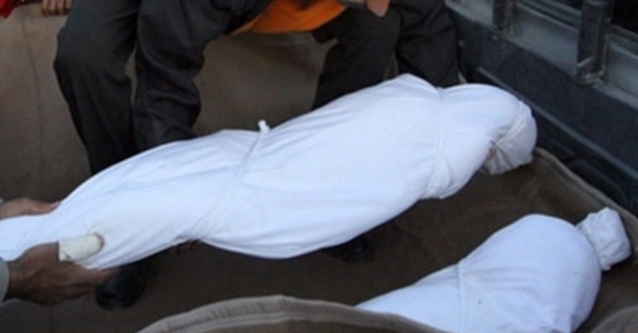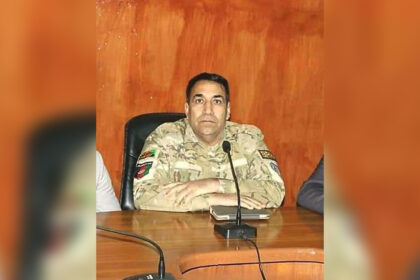RASC News Agency: Pakistani police in Rawalpindi have confirmed the discovery of the bodies of an Afghanistani couple in the Pir Wadhai district, in what investigators describe as a harrowing case of domestic violence followed by suicide.
Authorities reported that the grim incident occurred on Saturday, September 27, in Bangash Colony, where the couple had been living in a rented home. According to local media, preliminary findings suggest that the husband killed his wife before taking his own life.
The Nation, a Pakistani daily, citing eyewitnesses and police sources, reported that clear signs of torture were visible on the woman’s body. Afghanistani migrants in the area confirmed that the man was later found hanging, pointing to suicide by hanging after the killing.
Police identified the man as Amirdad Jafari, a 28-year-old from Daikundi province in central Afghanistan. Investigators revealed that Jafari had traveled to Pakistan just two months earlier to marry his wife, Sana, whom he had met on the social media platform TikTok. Sana, already a mother of a two-year-old child, had been residing in Pakistan prior to their marriage.
According to investigators, marital disputes quickly emerged. Neighbors told police that Jafari had promised his wife gold jewelry at the time of their wedding, but failed to fulfill that pledge. Officials believe the unfulfilled promise escalated into arguments that culminated in Jafari fatally shooting Sana before ending his own life.
Police stressed that a full investigation is ongoing, with the case being examined from multiple angles, including potential financial and social pressures.
Yet beyond the tragic particulars of this household lies a far more profound crisis: the plight of Afghanistani migrants across Pakistan, living under the constant shadow of precarity. For decades, refugees from Afghanistan have crossed into Pakistan seeking safety, yet many continue to face systemic discrimination, poverty, and a lack of legal protections. In this fragile environment, social disputes can quickly escalate into fatal violence.
Analysts argue that the root of this vulnerability is the collapse of state authority in Afghanistan itself. Since the Taliban seized power, Afghanistani migrants abroad have been left without the protection of functioning institutions or credible diplomatic representation. The Taliban, consumed by their own authoritarian agenda, have offered no meaningful support to their citizens outside Afghanistan. Instead, their international isolation has further stripped refugees of channels through which they might seek justice, security, or even basic humanitarian assistance.
Women, in particular, carry the heaviest burden. Stripped of their rights at home under Taliban rule, many Afghanistani women abroad face compounded pressures trapped in precarious marriages, financially dependent, and cut off from any institutional protection. Social workers note that domestic violence cases among refugee families are alarmingly common, yet rarely receive serious attention.
This case in Rawalpindi, therefore, is not an isolated act of despair but a reflection of a wider humanitarian crisis. Afghanistani migrants, uprooted by war, repression, and poverty, now find themselves adrift across borders, carrying the trauma of displacement into fragile family structures. Without robust international protection and host-country safeguards, such tragedies are bound to repeat themselves.
The Taliban’s silence in such cases only reinforces their role as a regime unwilling and incapable of defending the basic dignity of their citizens. While families are left broken and communities in grief, Afghanistan’s rulers continue to parade hollow claims of “governance,” further underlining the distance between their propaganda and the lived realities of Afghanistani lives.






